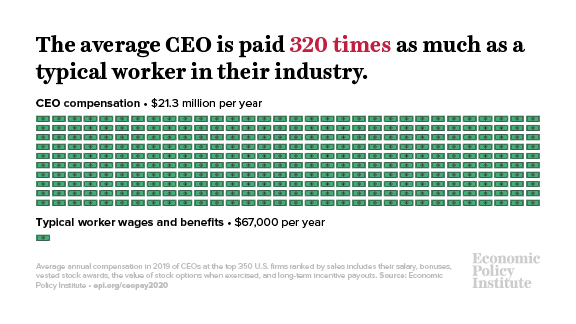
If the minimum wage had increased at the same pace as productivity growth over the last 70 years, it would be over $22 an hour today. The U.S. can certainly afford a $15 minimum wage.
Learn more about why we need to #RaiseTheWage: go.epi.org/raisethewage
Learn more about why we need to #RaiseTheWage: go.epi.org/raisethewage
A $15 minimum wage would lift pay for tens of millions of workers and help reverse decades of growing pay inequality. #RaiseTheWage #FightFor15 

Low wages hurt all workers and are particularly harmful to Black workers and other workers of color, especially women of color, who make up a disproportionate share of workers who are severely underpaid. Raising the minimum wage to $15 would help narrow racial pay gaps. 

A national $15 minimum wage would deliver wage increases to workers across the country. We map out how it would impact each congressional district: epi.org/publication/mi…
• • •
Missing some Tweet in this thread? You can try to
force a refresh











